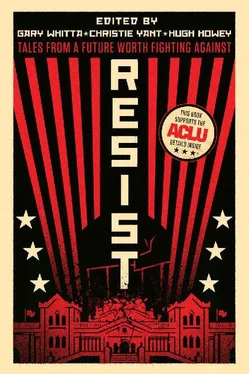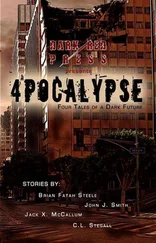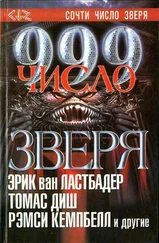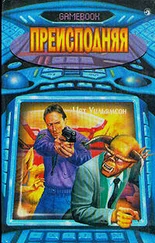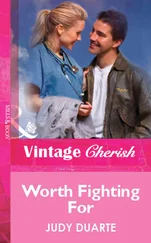They’re waving at us, shouting. They get closer and I see they’re holding guns. They’re always holding guns. But they don’t want to kill us. They want to conquer us, and take us back to land, turn us into City people, control our minds. They want to make us like them.
“Okay, now!” shouts the platform captain, and I aim my weapon once more, closing one eye as I sight down the barrel. I hold down the trigger until the magazine is spent.
Like all of the kids on Free Mind, I’ve been training to do this since I was ten. All those hours at the indoor range: they prepare you for the noise, the deafening staccato cracks; they acquaint you with the burn in your shoulder, the vibration in your hands, the acrid smell of gunpowder. Those hours teach you how to aim well and shoot straight, ocular implants highlighting the kill spots on your target. But they can never prepare you for what it’s really like: the act in the wild, the bodies dropping, the ship capsizing, the smoke rising from the hull, the mix of blood and oil churning in the water.
It’s over. The ship is sinking and the City’s soldiers are bullet-ridden and drowning, and Free Mind is safe—for now.
Since I turned sixteen I’ve done this three times; today, the fourth. Their assaults are becoming more frequent.
As always, the battle done, I’m wobbling and weak in the knees. The adrenaline departs my body as quickly as it arrived, and I’m suddenly sleepy and deflated. Together with the other Defenders, I’m giggling nervously, giggling with relief. We’re alive. We made it.
Behind my eyes there’s a weird ache, a dull buzzing tension that always seems to accompany these high-adrenaline moments. Only time and space relieve it.
WHEN I GET home my younger brother is sitting at the kitchen table in our small apartment, doing homework on his tablet and eating a bowl of shrimp. I sit across from him and help myself to a couple.
“I heard the sirens,” he says, eyes shining. “Did you go?”
“Yeah. I did.” My brother is fourteen, and my newly minted status as a Defender has greatly raised his estimation of my worth. Suddenly, his older sister is cool to him. I would be lying if I said I didn’t like it.
“What was it like?”
I describe the tension as we stood on the platform, waiting for the trawler to skim closer, and the way the City people waved and shouted, as if they could scare us.
“What were they saying?”
“I don’t know. I couldn’t make out the words.”
I don’t tell him that you never feel the same, after the first time. I can always close my eyes and see, for a moment, the scrum in the waves, the bloody bodies fall.
“I wish I could go,” he says. “I hate sitting in class and listening to the sirens. Wondering.”
“Log your range hours,” I say. “You’ll be sixteen before you know it.”
“Why do they keep coming, do you think?” he asks. “What’s the point?”
“I guess they have to,” I say slowly. “That’s just what the City demands. It’s not enough that they control the way everyone lives and looks and thinks over there. They can’t stand that we’re free over here; they won’t be content until they own us too. So they’ll keep sending people, forever.”
“But we’ll always fight them off,” he says, almost as if he’s trying to convince himself.
“Of course we will,” I say.
He seems satisfied with my explanation, but I’m not quite satisfied myself. Why would they sacrifice their own lives of comfort simply for the goal of absolute control?
THE NEXT FEW weeks are peaceful. Life in Free Mind relaxes into its steady rhythm: afternoon shifts at the greenhouse, evenings with my friends at the rec hall. My brother studies for his exams; he wants to be an engineer. My mother works long hours at the hospital, helping birth a fresh crop of babies. My father directs the Seastead’s southern expansion, building a new sector to accommodate our growing community.
One late morning I’m sitting at Hank’s with my friends, working on a massive stack of pancakes. Hank’s is located in a surface-level sector. It’s a little bit of a trek from where I live, but it’s totally worth it for the best pancakes in Free Mind.
Then the sirens start to wail.
My friend Paul hasn’t passed his Defender’s test yet so he grins sheepishly as the rest of us jump up from the table. My augmented reality kicks in; I see the gun locker in the corner, flashing yellow. I dash in that general direction, tripping over a few chairs along the way. Every Defender in Hank’s is grabbing a weapon. I follow the yellow flashing route to the nearest defense platform and get swept up with the rest.
I reach the platform—and everything is chaos.
It takes me a moment to process what I’m seeing:
The platform is covered with smoking rubble, chunks of concrete and burnt plastic, dust and sparks. The wall at the edge of the platform has been partially destroyed, and in that jagged space the City soldiers are coming through. There are bullets flying in all directions. Blood is running along the platform.
Something comes whistling up from beyond the wall. It explodes in a screaming bang and another part of the wall crumbles. A Free Minder falls. A City soldier is missing a leg. The pain behind my eyes is searing.
I’m frozen in shock and can’t even move. It’s never been like this before. I don’t know what to do. I look to my friend Isabel for reassurance, but I can’t see her anywhere.
Next thing I know someone knocks my gun right out of my hands — I’d forgotten I was holding it — and grabs me by the shoulders. It’s a City soldier. I can’t see him clearly; my vision is blurry with dust and sweat and tears. But I know it’s a soldier. He drags me across the platform. I’m kicking and screaming. “Help! Help me! Someone!” I’m trying to fight him off but I’m just a sixteen-year-old girl and he’s so much bigger than me. Another one grabs me too and then I’m immobilized, caught between them, writhing as my feet don’t touch the ground. Around me Free Minders are fighting for their lives and most of all, fighting to make sure the City soldiers don’t get beyond the platform. If they make it inside, it’s all over for us.
Then I’m being pushed through the hole in the wall and tossed onto the deck of the boat. The men who grabbed me come tumbling after. They land on top of me, pushing me flat on my face. Rough hands grab my wrists and tie them behind my back. I can feel the boat rocking and shifting, the idle motor kicking to life. We’re moving.
My captors sit me up. For the first time I see the Seastead from the outside. It’s a gleaming white ziggurat rising from the waters—and now, receding rapidly behind us. Two more City boats are floating just beyond the platform, where the battle continues. One of the boats is on fire. Another is sinking.
I crane my neck and try to see behind me. There is the scrappy wisp of land. There are the skyscrapers, shimmering along the skyline. We’re going to the City.
“I’m going to be sick,” I say, and a moment later I’m puking my half-digested pancakes all over myself.
“She’s just a child,” one of the City soldiers says. The voice is a woman’s. I squint at her, trying to make her out; I can’t see very well. All I can see is her close-cropped hair, almost bald. Her gray jumpsuit. It should be spattered with blood, as I am, but it’s not. It’s spotless, pristine. So is the deck of the boat.
There are six of them. Now one is coming closer to me. “I’m going to clean you up,” he says. “Don’t bite me, okay?”
Читать дальше
